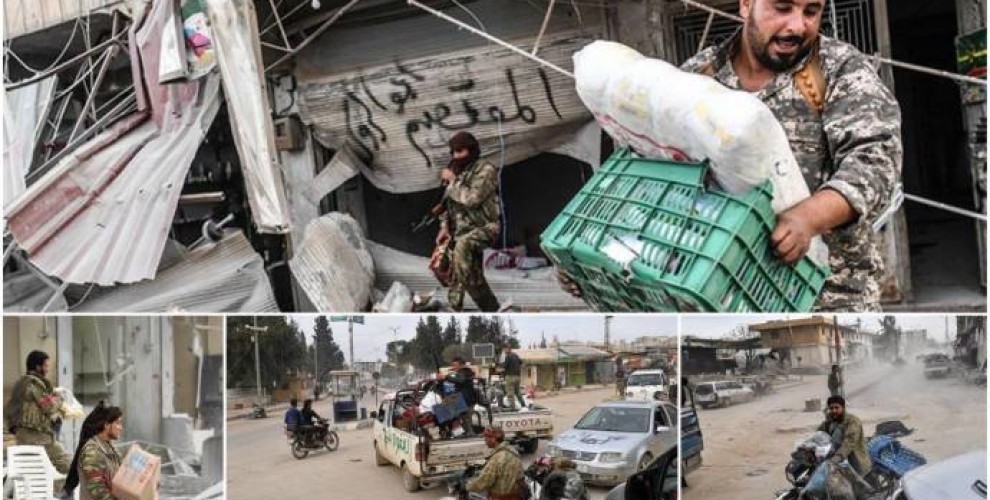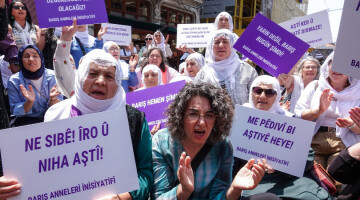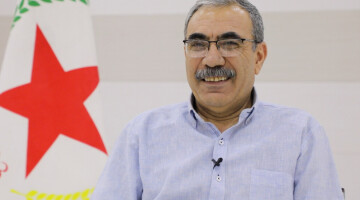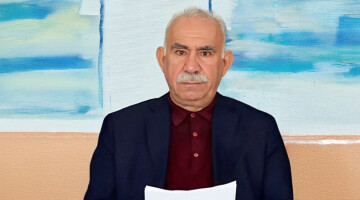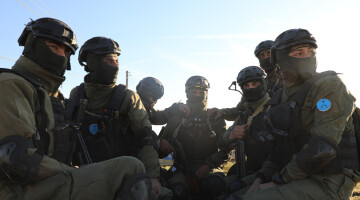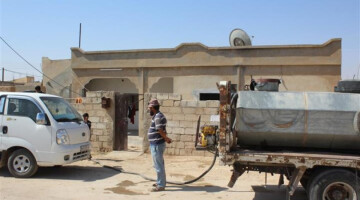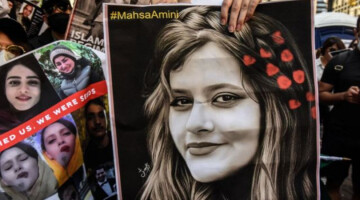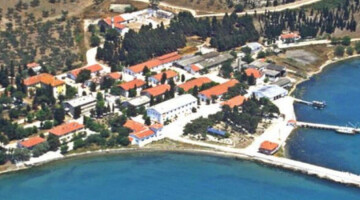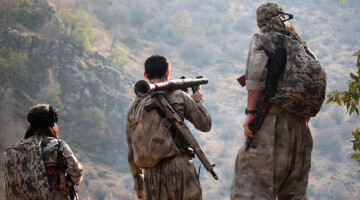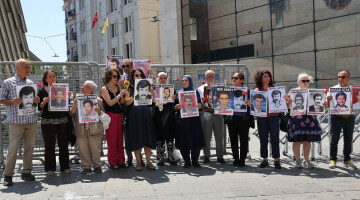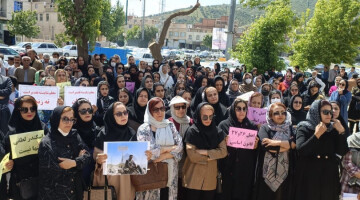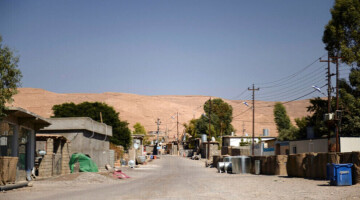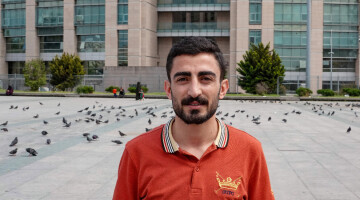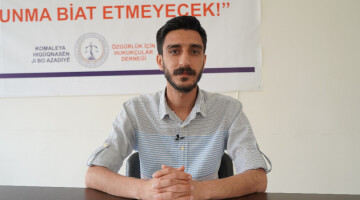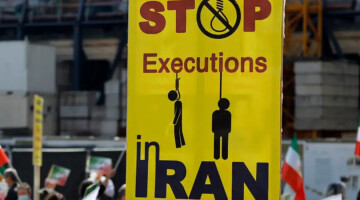Research released by Amnesty International today reveals that residents in Afrin are enduring a wide range of violations, mostly at the hands of Syrian armed groups that have been equipped and armed by Turkey. These violations include arbitrary detentions, enforced disappearances, and confiscation of property and looting to which Turkey’s armed forces have turned a blind eye. Some of these groups, and Turkish armed forces themselves, also have taken over schools, disrupting the education of thousands of children.
“Turkey’s military offensive and occupation have exacerbated the suffering of Afrin residents, who have already endured years of bloody conflict. We heard appalling stories of people being detained, tortured or forcibly disappeared by Syrian armed groups, who continue to wreak havoc on civilians, unchecked by Turkish forces,” said Lynn Maalouf, Amnesty International’s Middle East Research Director.
“Turkey is the occupying power in Afrin, and therefore is responsible for the welfare of the civilian population and maintaining law and order. So far, its armed forces have failed utterly in these duties. It cannot evade responsibility by using Syrian armed groups to carry out its dirty work. Without further delay, Turkey must end violations by pro-Turkish armed groups, hold perpetrators accountable, and commit to helping Afrin residents rebuild their lives.”
In January 2018, Turkey and allied Syrian armed groups launched a military offensive against the People’s Protection Units (YPG), the military force of the autonomous administration led by the Syrian Kurd Democratic Union Party (PYD). Three months later, Turkey and its allied forces seized control of Afrin and its surrounding areas, forcibly displacing thousands of people who fled and sought safety in the nearby al-Shahba region where they are now living in dire conditions.
According to several residents in Afrin, Turkey’s armed forces have a significant presence in the centre of the city, and in several surrounding villages. On 1 July, Turkey’s Ministry of Foreign Affairs stated that its armed forces will stay in Afrin to continue working on the development of the area.
Between May and July 2018 Amnesty International interviewed 32 people, some of whom were still living in Afrin and others who had fled to other countries or different areas of Syria. Interviewees named pro-Turkey armed groups including Ferqa 55, Jabha al-Shamiye, Faylaq al-Sham, Sultan Mourad, and Ahrar al-Sharqiye, as responsible for serious human rights violations.
On 16 July, Amnesty International communicated to the Turkish government a summary of its preliminary findings, requesting a response. On 25 July, the Turkish government responded questioning impartiality referring to the use of terminology such as ‘al-Shahba region’ and ‘autonomous administration’ without providing a concrete response to the findings.
Pro-Turkey forces responsible for arbitrary detention and enforced disappearances
Amnesty International interviewed several residents and internally displaced people who reported that armed groups had arbitrarily detained civilians for ransom, as punishment for asking to reclaim their property, or on baseless accusations of affiliation to the PYD or YPG. Local sources told Amnesty International of at least 86 instances of arbitrary detention, torture and enforced disappearance.
Two former detainees Amnesty International interviewed said they had been held by Sultan Mourad and accused of being affiliated with the YPG. They told Amnesty International they had seen journalists, teachers, engineers, activists, as well as former employees of the PYD and YPG fighters in the prison in Azaz where they were held.
Pro-Turkey forces responsible for property confiscation
Since March 2018, when Turkey and allied armed groups seized control of Afrin, hundreds of people have been returning to the city by foot through a mountainous route, as the YPG has blocked the official routes into the city, deliberately preventing displaced people from returning to Afrin. Many of those who managed to return found that their properties had been confiscated and their possessions stolen by armed groups allied with Turkey.
People told Amnesty International that Syrian armed groups had confiscated properties and shops in Afrin. Displaced residents said they were informed by their relatives and neighbours that their homes were either being used by the pro-Turkey armed groups as military headquarters, or occupied by displaced families from Eastern Ghouta and Homs.
Pro-Turkey forces responsible for looting of homes and businesses
Twelve people told Amnesty International they had witnessed or been victims of looting. Several displaced people were told by their relatives that their home had either been completely looted or were missing expensive appliances such as their TV sets, computers, washing machines or refrigerators.
In April 2018, a representative of the military court claimed in a media interview that there had been looting incidents during the military operation, by both armed members and civilians, but that the court had begun to return the belongings to their owners. The court representative explained that, in coordination with the military police in Azaz and Turkey’s armed forces, the individuals responsible for the looting had been arrested and referred to court.
But one person who returned to Afrin in May told Amnesty International: “I went to my parents’ home and it was empty. They stole every piece of furniture, appliances, and everything else. The neighbours saw the Free Syrian Army packing all the furniture in trucks. There are at least four armed groups in control of the village, so they don’t know which one was responsible.”
A resident from Afrin who sought refuge in Germany told Amnesty International: “I have five apartments in Afrin city and a commercial shop. My friend told me that two of my homes are now occupied by displaced families. I managed to get the phone number of two families, one from Harasta and another from Eastern Ghouta. I called them to ask them to take care of the house but they told me that the house was already looted when they moved in. I had just renovated the house. My problem is not with the families living in the house, but with the armed groups.”
“All parties to Syria’s conflict, including the YPG, Turkey’s armed forces and local armed groups, should facilitate the safe and voluntary return of people to Afrin”, said Lynn Maalouf.
“As the occupying power, Turkey must provide full reparation to those whose homes have been confiscated, destroyed, or looted by security forces or by their allies. It is Turkey’s duty to ensure that displaced civilians are able to return to their homes in Afrin and are afforded restitution, or where this is not possible, compensation.”
Turkey and armed groups responsible for the military use of schools
Since January 2018, access to education has been nearly impossible for people in Afrin. Residents told Amnesty International that since March, children had been able to access only one school in Afrin city, while Afrin University has been completely shut down after it was destroyed and looted. According to former teachers displaced to the al-Shahba region, Turkish forces, alongside allied Syrian armed groups, are using Amir Ghabari School in Afrin as military headquarters. Amnesty International reviewed satellite imagery from 20 April 2018 showing several armoured vehicles and a recently built-up structure. These vehicles and structure were not present before Turkish forces and armed groups gained control of Afrin on 18 March 2018.
According to local media sources and residents, Turkish forces and the armed groups converted the public school in Shara to a police headquarters in June 2018. Turkish forces are also using another school in Jenderes as a field hospital, according to residents.
“Under international humanitarian law, and particularly in situations of occupation, schools benefit from special protection and the education of children must be provided for. We urge Turkey to take all necessary measures to ensure that children are able to return to school and that the university is promptly rehabilitated and reopened as soon as possible”, said Lynn Maalouf.
Following the offensive in January 2018, thousands of people fled to the nearby al-Shahba region. At least 140,000 people are now living in camps or damaged houses without proper access to services, especially medical care. The injured and chronically ill have to wait for government permission to be allowed access into Aleppo city, the nearest place where they can receive adequate medical care.

